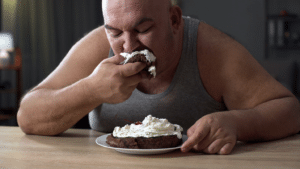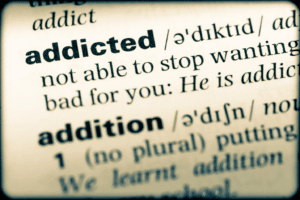Try googling that…you’ll get opinions ranging from supporting the treatment model, to almost a hateful, and adversarial position. Do treatment centers really work? First, I have to ask myself, what does “work” mean.
Work
“wərk” verb– intransitive form
: to produce a desired effect or result – a plan that will work
: to exert an influence or tendency – the plan worked, he isn’t eating paint chips anymore
So, based on these definitions, and common sense, does relapse mean treatment doesn’t or didn’t work? I don’t think that it’s fair or accurate to say the treatment center didn’t work because Bobby relapsed 2 months, 9 months, or 2 years after completing ninety days of treatment. The purpose of going to a treatment center is to stop using (duh), stop doing crime (double duh) and to be able to return to the family, job, and community as an asset, instead of a liability and a risk. And anybody with even limited knowledge of recovery knows that you have to continue to practice and implement the tools, strategies, and behaviors you learned in treatment in order to expect to continue to recovery and grow.
If Bobby suffered from diabetes and let his blood-sugar count get too far out of normal, had a seizure and went to the hospital; does that mean the treatment for his condition doesn’t work, or that Bobby didn’t entirely stick to the treatment plan developed for him by the healthcare professionals. Unfortunately, where addiction/alcoholism (it’s really all the same) is concerned, many individuals view relapse as an indicator of failure. Double standard much? Revisit Bobby; he has a stash of wham-whams and zoom-zooms under his bed; secretly he was chipping at them and making sure there was no evidence, so when he ends up having a seizure, does anyone blame the hospital?

Successful treatment for addiction typically requires continual evaluation and modification as appropriate, or that alternate treatment is needed, similar to the approach taken for other chronic diseases. Additionally, like other chronic diseases, you have to continue to participate in a lifestyle that mitigates the potential for relapse.
Everyone’s story and path is different, and everyone requires different experiences and consequences to serve as the impetus for continued, long-term sobriety. In my personal adventure, the very first time I was introduced to treatment and the 12-Step program, I put together 10 years of recovery. But then later, after being diagnosed with Stage IV non-Hodgkin’s lymphoma, going through a divorce, and getting unceremoniously asked to quit coming to band practice…lol, I started using again, and I continued to drink and use for 5 years.
It was a death march like few others. In those 5 years I tried many times to get clean again, then one time it stuck. I celebrated 5 years on October 13, 2018. The point is, did the first treatment center that resulted in 10 years clean time not work because I relapsed? Of course not. But what about the second or third one where I relapsed after a few weeks, did they work? I think so. But perspective is always relative to what side of the street you are on. My only advice… don’t look down on people in the gutter when you’re only on the curb. It takes what it takes and unfortunately there’s no universally accepted axiom for what that is.

Obviously, there is always room for improvement in the treatment industry and there are some organizations out there that aren’t doing the right thing for the right reasons. But don’t let that taint your opinion of the whole industry.
Addiction treatment is not always 100% effective, there are a few ways to help make rehab centers more effective on a personal level. Personal motivation, willingness to change, and above all else ultimately, keep an open mind. Trusting the process will help a lot, remember that you didn’t get to treatment on a winning streak! Also, when heading into a treatment center, do so with an open mind, and be ready to take a good hard look at yourself. Only then can you see the truth and make the changes necessary for a drug and alcohol-free life.
At the end of the day, you have to just be cool. To yourself, and to those around you. You have to do what works for you, I get that and so does everyone else. But if you lie to yourself, it is like cheating at solitaire…hahaa, like “YES! I win AGAIN, I rule at this game…”
So, there it is, my rant for the day…you know what I need now, like me, share me, subscribe to me, share me…. lol
Have a great day….



0 Comments